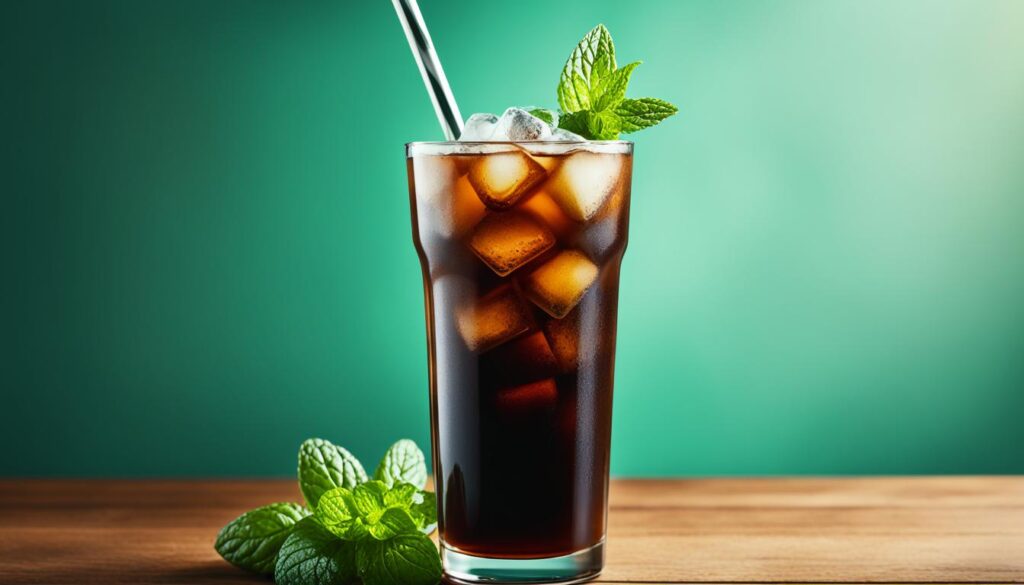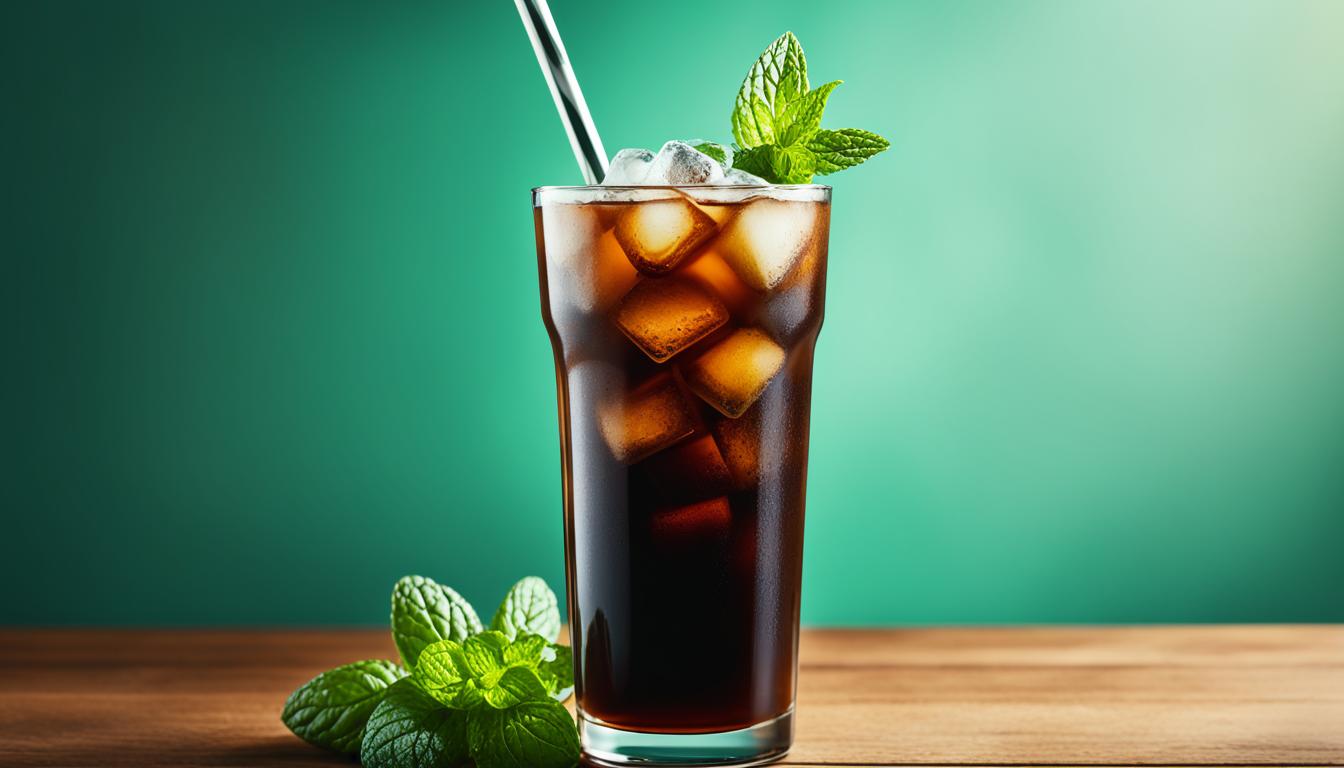
Does Cold Brew Coffee Need to Be Refrigerated? Unpacking the Essentials
The world of coffee is a constantly evolving landscape, with new brewing methods and flavor profiles emerging regularly. Among these, cold brew has secured a prominent position, celebrated for its smooth, less acidic taste. But a fundamental question often arises for both home brewers and coffee shop aficionados: does cold brew coffee need to be refrigerated? The answer, like the coffee itself, is nuanced and depends on a few critical factors. This article will delve into the science behind cold brew, explore best practices for storage, and provide a comprehensive guide to ensuring your cold brew remains fresh and delicious.
Understanding the need for refrigeration is crucial in maintaining the quality and safety of your cold brew. Without proper storage, the rich flavors you worked so hard to extract can quickly degrade, and, in some cases, the beverage can even become unsafe to consume. We’ll address these concerns, providing you with the knowledge to enjoy your cold brew at its best.
The Cold Brew Process: A Brief Overview
Before answering the question of refrigeration, let’s recap the basics of cold brew. Unlike hot brewed coffee, cold brew is made by steeping coffee grounds in cold or room-temperature water for an extended period, typically 12 to 24 hours. This slow extraction process results in a concentrate that is naturally lower in acidity and often boasts a smoother, sweeter profile. Once the steeping is complete, the grounds are filtered out, leaving behind the concentrated cold brew liquid.
This process, while simple, is crucial to understanding the potential for spoilage. The extended steeping time allows for the extraction of not just desirable flavors but also organic compounds and nutrients that can serve as food for microorganisms. This is where refrigeration becomes a key consideration.
Why Refrigeration is Generally Recommended for Cold Brew
The primary reason to refrigerate cold brew is to slow down the growth of bacteria and other microorganisms. Even after filtration, cold brew still contains organic matter that can support microbial growth. Refrigeration significantly inhibits this growth, extending the shelf life and preserving the flavor of your cold brew.
Here’s a breakdown of the benefits:
- Extended Shelf Life: Refrigeration dramatically increases the time you can safely store your cold brew. Properly refrigerated cold brew can last for up to two weeks, sometimes longer, depending on the brewing process and storage conditions.
- Flavor Preservation: Refrigeration helps to maintain the delicate flavors of your cold brew. The cold temperature slows down the oxidation process, which can cause the coffee to become stale and lose its vibrant taste.
- Safety: Refrigeration is a crucial step in preventing the growth of harmful bacteria. While cold brew is generally considered safe, improper storage can create an environment where pathogens can thrive.
Does cold brew coffee need to be refrigerated? Generally, yes. Refrigeration is vital for maintaining the quality and safety of your cold brew.
Storage Best Practices: Maximizing Freshness
Proper storage is just as important as the brewing process itself. Here are some best practices to ensure your cold brew stays fresh and delicious:
- Use an Airtight Container: After brewing and filtering, transfer your cold brew to an airtight container. This will help to prevent oxidation and maintain the coffee’s flavor. Glass or food-grade plastic containers are excellent choices.
- Refrigerate Immediately: Once your cold brew is filtered and in an airtight container, refrigerate it immediately. Don’t leave it at room temperature for extended periods.
- Keep it Cold: Maintain a consistent refrigerator temperature, ideally between 35°F and 40°F (2°C and 4°C).
- Avoid Contamination: Be careful not to contaminate your cold brew with other foods in the refrigerator. Ensure the container is tightly sealed to prevent any odors or flavors from transferring.
- Check for Signs of Spoilage: Before consuming your cold brew, always check for any signs of spoilage. These include an off-putting smell, a change in color, or the presence of mold. If you notice any of these, discard the cold brew immediately.
Following these steps will help you get the most out of your cold brew, ensuring it remains a refreshing and flavorful beverage.
Unopened vs. Opened Cold Brew: Different Considerations
The storage guidelines for cold brew differ slightly depending on whether the product is commercially produced and unopened, or homemade and opened. Here’s a breakdown:
Unopened Commercial Cold Brew
Commercially produced cold brew often undergoes additional processing, such as pasteurization, that extends its shelf life. Unopened cold brew, if properly sealed and stored according to the manufacturer’s instructions, can often be stored at room temperature. However, once opened, it should be refrigerated and consumed within a reasonable timeframe, usually a few days. Always refer to the product’s label for specific storage recommendations.
Opened Homemade Cold Brew
Homemade cold brew, which is not pasteurized, requires more careful handling. After brewing, filtration, and transfer to an airtight container, immediate refrigeration is essential. It should be consumed within a week or two for optimal freshness and flavor. The exact timeframe will depend on the specific brewing process and storage conditions.
Does Cold Brew Concentrate Need Refrigeration?
Yes, does cold brew coffee need to be refrigerated even as a concentrate? Absolutely. Cold brew concentrate, being a highly concentrated form of coffee, is more susceptible to spoilage if not stored properly. The high concentration of coffee solids provides ample food for microorganisms. Refrigeration is crucial for preserving the concentrate’s quality and safety. Dilute the concentrate with water or milk just before drinking.
The Impact of Filtration on Shelf Life
The quality of filtration plays a role in how long your cold brew will last. A thorough filtration process removes most of the coffee grounds, which reduces the amount of organic matter available for microbial growth. Using a fine-mesh filter or multiple filtering steps can help to extend the shelf life of your cold brew. However, even with excellent filtration, refrigeration remains essential.
The type of filter can also make a difference. Paper filters, for example, can remove more fine particles than metal mesh filters, potentially leading to a slightly longer shelf life. However, the difference is usually minimal compared to the impact of refrigeration.
Factors Affecting Cold Brew Freshness
Several factors can influence the freshness and shelf life of your cold brew, even when refrigerated. Understanding these factors can help you optimize your brewing and storage practices:
- Coffee Bean Quality: The quality of the coffee beans you use can impact the final product. Freshly roasted beans generally produce a better-tasting cold brew.
- Water Quality: The quality of the water you use is also important. Use filtered water to avoid any off-flavors.
- Brewing Time: The length of the brewing time can affect the final flavor and shelf life. Over-extraction can lead to a bitter taste and potentially shorten the shelf life.
- Container Type: As mentioned earlier, using an airtight container is crucial for preventing oxidation and preserving flavor.
- Temperature Fluctuations: Avoid frequent temperature fluctuations in your refrigerator, as this can negatively affect the cold brew’s quality.
By paying attention to these factors, you can maximize the freshness and enjoyment of your cold brew.
Troubleshooting Cold Brew Spoilage
Even with proper storage, cold brew can sometimes spoil. Here are some common signs of spoilage and what to do:
- Off-Putting Smell: If your cold brew has an unusual or unpleasant odor, it has likely spoiled.
- Cloudiness or Sediment: While some sediment is normal, excessive cloudiness or the presence of unusual sediment can indicate spoilage.
- Mold Growth: Any visible mold growth is a clear sign that the cold brew is no longer safe to consume.
- Change in Taste: If your cold brew tastes sour, bitter, or otherwise off, it has likely gone bad.
If you notice any of these signs, discard the cold brew immediately. It’s always better to err on the side of caution.
The Verdict: Refrigerate Your Cold Brew
So, does cold brew coffee need to be refrigerated? The definitive answer is: Yes, almost always. Refrigeration is essential for preserving the flavor, extending the shelf life, and ensuring the safety of your cold brew. By following the storage best practices outlined in this article, you can enjoy the refreshing taste of cold brew for days, even weeks, after brewing. Remember to use an airtight container, refrigerate immediately, and check for any signs of spoilage before consuming.
Whether you’re a seasoned coffee aficionado or new to the cold brew scene, understanding the importance of refrigeration is key to maximizing your enjoyment of this delicious beverage. Now you know the answer to the question: does cold brew coffee need to be refrigerated. Enjoy your perfectly chilled cold brew!
Beyond Refrigeration: Other Considerations
While refrigeration is paramount, there are a few additional points to consider for the ultimate cold brew experience:
- Dilution: Cold brew is typically a concentrate. Always dilute it with water, milk, or your preferred liquid before drinking. This allows you to control the strength and flavor.
- Serving Suggestions: Cold brew is versatile. Experiment with different serving styles, such as adding ice, sweeteners, or flavorings like vanilla or caramel.
- Experimentation: Don’t be afraid to experiment with different coffee beans, brewing times, and ratios to find your perfect cold brew recipe.
By paying attention to these details, you can elevate your cold brew experience even further.
Frequently Asked Questions
Here are some of the most common questions about cold brew and refrigeration:
How long does cold brew last in the fridge? Properly refrigerated cold brew can last for up to two weeks, sometimes longer.
Can I freeze cold brew? Yes, you can freeze cold brew. Freezing can extend its shelf life for several months, but the texture may change slightly. Consider freezing in ice cube trays for easy portioning.
Is cold brew safe to drink if left out overnight? It’s generally not recommended. Leaving cold brew at room temperature overnight significantly increases the risk of bacterial growth and spoilage. It’s best to discard it.
Does cold brew concentrate need to be refrigerated? Yes, cold brew concentrate also needs to be refrigerated.
Does cold brew coffee need to be refrigerated if it’s store-bought? Yes, generally store-bought cold brew should be refrigerated after opening. Always follow the manufacturer’s instructions on the label.
[See also: How to Make Cold Brew Coffee at Home] [See also: Best Coffee Beans for Cold Brew] [See also: Cold Brew vs. Iced Coffee: What’s the Difference?]


